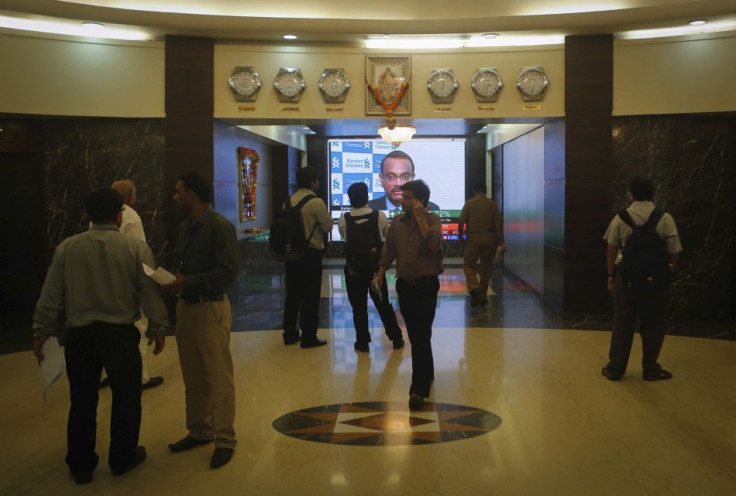Asian Markets on Track For Biggest Three-Week Gain in Two Years

Asian markets traded lower on 20 September, after a rate hike in India dragged down the benchmark Sensex and weighed on investor sentiment across the region.
However, Asian stocks are on track to log their biggest three-week gain in two years.
Japan's Nikkei finished 0.16% lower or 23.76 points at 14,742.42.
Australia's S&P/ASX finished 0.36% lower or 18.80 points at 5,276.70.
India's BSE Sensex was trading 2.22% lower or 457.81 points to 20,188.83.
Financial markets in mainland China, Hong Kong and South Korea remained closed on account for public holidays.
The Reserve Bank of India (RBI) defied market consensus and raised the benchmark repurchase rate by 25 basis points to 7.5%.
The news pulled down Indian stocks and the benchmark S&P BSE Sensex, which hit a two-and-a -half year high on 19 September following the US Federal Reserve Shocker.
The Indian rupee lost 1% following the RBI decision. The rupee, the second-worst performing Asian currency, jumped by about 2.8% on 19 September to an over one-month high after the US Federal Reserve decided against reducing its $85bn a month bond-buying stimulus programme.
"Let us remember that the postponement of tapering is only that, a postponement. We must use this time to create a bullet proof national balance sheet and growth agenda, which creates confidence in citizens and investors alike," RBI Governor Raghuram Rajan said in a statement.
Wall Street Mixed
On Wall Street, most indices ended lower on 19 September, a day after the Fed announced it would stay the course and not start paring back its monetary stimulus.
The Dow finished 40.39 points lower at 15,636.55, pulled down by UnitedHealth and Hewlett-Packard.
The S&P 500 closed 3.18 points lower at 1,722.34 while the Nasdaq ended 5.74 points higher at 3,789.38.
However, the Dow and the S&P are on track to log their biggest monthly gains in nearly two years.
Company Stock Movements
In Tokyo, exporter stocks gained on a weaker yen. Camera maker Nikon shot up 6% while gaming giant Nintendo jumped 4%.
Real estate developer Mitsubishi Estate added 1% on news that the average land price in greater Tokyo, Osaka and Nagoya had risen rose 0.1% year-on-year as of 1July. The reading marks the first annual increase in five years.
Utility firm Tokyo Electric Power lost 2.3% on news that it had set aside $10b to dismantle damaged reactors at its polluted Fukushima Daiichi nuclear power plant.
Retailer Aeon shed 0.5% after the Nikkei reported that the firm's consolidated operating profit for the half year ended 31 August could be below expectations.
In Mumbai, construction major Larsen and Toubro shed 2.8%. Yes Bank fell 3.4% while ICICI Bank lost 2%.
In Sydney, gold miner Kingsgate Consolidated lost over 4% while rival Perseus Mining shed 3% despite higher spot gold prices.
Surfwear maker Billabong was the worst-performing stock on the index, down 7.4%. On 19 September, the firm accepted a refinancing proposal from US hedge funds Centerbridge Partners and Oaktree Capital Management.
© Copyright IBTimes 2025. All rights reserved.






















